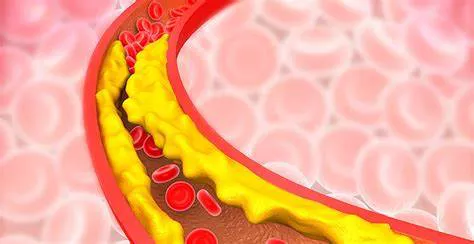Calcium deposits in the coronary arteries, also known as coronary artery calcification (CAC), are a significant indicator of atherosclerosis, a condition where the arteries harden due to plaque buildup. These deposits can impede blood flow to the heart, leading to serious cardiovascular events such as heart attacks. Understanding how to reverse or manage these deposits is crucial for maintaining heart health and preventing complications.
How to Reverse Calcium Deposits in Coronary Arteries?
Healthy Diet
Nutrient-Rich Foods: Consuming a diet rich in fruits, vegetables, whole grains, lean proteins, and healthy fats is essential.
Foods high in antioxidants, fiber, and omega-3 fatty acids can help reduce inflammation and improve heart health.
Avoiding Trans Fats and Sugars: Reducing the intake of trans fats, saturated fats, and added sugars is crucial. These substances can increase cholesterol levels and contribute to plaque buildup in the arteries.
Incorporating Specific Nutrients: Certain nutrients, such as vitamin K2, magnesium, and potassium, have been shown to help in managing calcium deposits. Vitamin K2 helps direct calcium to the bones rather than the arteries, while magnesium and potassium aid in maintaining a healthy heart rhythm and blood pressure.
SEE ALSO: How Can Coronary Artery Disease Be Prevented?
Regular Physical Activity
Aerobic Exercise: Engaging in regular aerobic exercises, such as walking, jogging, cycling, or swimming, can help improve cardiovascular health. Exercise helps reduce blood pressure, improve cholesterol levels, and enhance overall heart function.
Strength Training: Incorporating strength training exercises at least twice a week can also be beneficial. Building muscle mass helps in improving metabolism and supporting overall cardiovascular health.
Smoking Cessation
Impact of Smoking: Smoking is a significant risk factor for the development and progression of atherosclerosis and CAC.
Quitting smoking can dramatically improve heart health and reduce the risk of further calcification.
Support for Quitting: Seeking support through smoking cessation programs, counseling, and medication can increase the chances of successfully quitting smoking.
Medical Interventions And Treatments
In some cases, lifestyle changes alone may not be sufficient to manage or reverse calcium deposits in the coronary arteries.
Medical interventions and treatments may be necessary.
Medications
Statins: Statins are commonly prescribed to lower cholesterol levels.
They not only reduce LDL cholesterol but also have anti-inflammatory properties that can help stabilize plaque and prevent further calcification.
Blood Pressure Medications: Controlling blood pressure is crucial for preventing the progression of CAC. Medications such as ACE inhibitors, beta-blockers, and calcium channel blockers can help manage hypertension effectively.
Aspirin Therapy: In some cases, low-dose aspirin therapy may be recommended to reduce the risk of blood clots and heart attacks.
However, it is important to consult with a healthcare provider before starting aspirin therapy due to potential risks.
Medical Procedures
Angioplasty and Stenting: For severe cases of coronary artery calcification, angioplasty and stenting may be necessary. This procedure involves inserting a balloon catheter to widen the artery and placing a stent to keep it open, improving blood flow.
Coronary Artery Bypass Grafting (CABG): In cases where multiple arteries are severely blocked, bypass surgery may be required. This involves using a healthy blood vessel from another part of the body to create a new route for blood flow around the blocked arteries.
Innovative Approaches And Emerging Treatments
Advancements in medical research have led to the development of innovative approaches and emerging treatments for reversing or managing calcium deposits in coronary arteries.
Calcification Inhibitors
Experimental Drugs: Researchers are exploring drugs that specifically target and inhibit the process of calcification in the arteries. These drugs aim to prevent calcium from depositing in the arterial walls and may offer a promising approach for managing CAC.
Potential Benefits: Although still in the experimental stages, calcification inhibitors have shown potential in preclinical studies to reduce arterial calcification and improve cardiovascular outcomes.
Nanotechnology And Drug Delivery Systems
Targeted Therapies: Nanotechnology is being investigated for its potential to deliver drugs directly to the site of arterial calcification.
This targeted approach may enhance the effectiveness of treatments and reduce side effects.
Precision Medicine: The development of precision medicine, which tailors treatments based on an individual’s genetic makeup and specific characteristics, holds promise for more effective management of CAC.
Regenerative Medicine
Stem Cell Therapy: Regenerative medicine approaches, such as stem cell therapy, are being explored for their potential to repair and regenerate damaged arterial tissue. Stem cells have the ability to differentiate into various cell types and may help in reducing calcification and promoting vascular health.
Monitoring And Regular Check-Ups
Monitoring calcium deposits in the coronary arteries is essential for assessing the effectiveness of treatments and making necessary adjustments.
Coronary Calcium Score (CAC Score)
Importance of CAC Score: The coronary calcium score is a non-invasive imaging test that measures the amount of calcium in the coronary arteries. It provides valuable information about the extent of calcification and helps in assessing cardiovascular risk.
Regular Screening: For individuals with risk factors for atherosclerosis or a history of cardiovascular disease, regular screening with CAC scoring can help in early detection and timely intervention.
Follow-Up with Healthcare Providers
Regular Check-Ups: Regular follow-up visits with healthcare providers are crucial for monitoring heart health and managing CAC. These visits allow for adjustments in treatment plans, lifestyle recommendations, and the assessment of overall cardiovascular health.
Collaborative Care: Working closely with a cardiologist and other healthcare professionals can ensure comprehensive care and the best possible outcomes in managing calcium deposits in the coronary arteries.
Conclusion
Reversing calcium deposits in the coronary arteries is a multifaceted approach that involves lifestyle changes, medical interventions, and emerging treatments. A heart-healthy diet, regular physical activity, and smoking cessation are foundational steps in managing and potentially reversing coronary artery calcification. Medical treatments, including medications and procedures, play a crucial role in more severe cases. Innovations in calcification inhibitors, nanotechnology, and regenerative medicine hold promise for the future. Regular monitoring and collaboration with healthcare providers are essential for effective management and prevention of complications.


